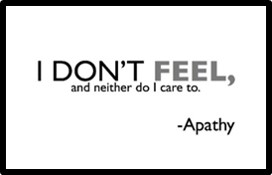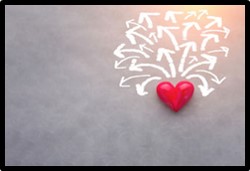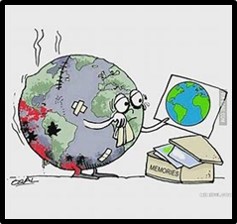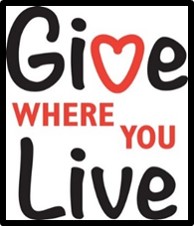Monday Author: Susanne Skinner
The greatest danger to our future is apathy ~ Jane Goodall
Is there a hard limit to human compassion? Does our emotional capacity to feel the weight of the world’s sadness reach a point of saturation and get tapped out?
 The news we see and hear is mostly unwelcome; it shocks and hardens us at the same time. Seeing the same thing over and over dulls our senses until it becomes just another tragedy. What used to be one-hour news now reports and repeats the same stories 24 hours a day.
The news we see and hear is mostly unwelcome; it shocks and hardens us at the same time. Seeing the same thing over and over dulls our senses until it becomes just another tragedy. What used to be one-hour news now reports and repeats the same stories 24 hours a day.
It doesn’t take long to develop an emotional immunity to the horror playing out on our screens. We see wars with no end, another school shooting, political malfeasance, sexual harassment in graphic terms and very little good news to balance it all.
When apathy—a.k.a. lack of interest—sets in, we experience an absence of concern in our emotional, social, spiritual, philosophical and physical life. How much shocking news does it take before we begin to suffer from compassion apathy?
How Much Is Too Much?
We hear bad news every day. Much of it is forgotten within minutes and we move on because it wasn’t our hurricane, flood, car crash or child. It’s not someone we know, or care about. We weren’t personally affected; it’s more bearable because it’s less meaningful.
It’s not just the news. The Internet is also an offender. It has become an invisible space where people can be rude and insulting without any thought to the impact it has. Expressing an opinion invites internet trolls to weigh in, telling you how wrong, insane, misguided and stupid you are. On the internet, words have no consequences.
When we lose our ability to empathize with other human beings we project our own opinions on them and in so doing we dull, and perhaps lose, our ability to feel even the slightest bit of compassion.
The Limits of Human Compassion
Compassion is different than empathy or generosity; it’s a direct emotional response to another human being by extending our support. Empathy is emotional and generosity is born from the desire to help. When both are present so is compassion.
 I believe compassion exists and all people are capable of expressing it, but lately I have been wondering if we humans have lost our compassion connection. People are naturally hardwired to be compassionate toward others; we want to help because it makes us feel good. But what happens when the desire to help has run dry and we feel as if we have nothing more to give? Compassion fatigue sets in.
I believe compassion exists and all people are capable of expressing it, but lately I have been wondering if we humans have lost our compassion connection. People are naturally hardwired to be compassionate toward others; we want to help because it makes us feel good. But what happens when the desire to help has run dry and we feel as if we have nothing more to give? Compassion fatigue sets in.
Does compassion reach a limit? Paul Slovic, a psychologist at the University of Oregon, believes it does, and calls it psychic numbing. As the scope of a tragedy increases, our empathy—our willingness to help—decreases. This happens even when the number of victims increases from one to two.
The human mind is not good at comprehending large-scale suffering. It has a finite ability for compassion when the scale of the tragedy increases. The value of a single life is diminished against the enormity of casualty and loss. It is easy to feel compassion for an individual but difficult to scale up when statistics are in the hundreds and thousands.
Finding Compassion in a Hurting World
 When bad news, cynicism and despair dominate our world we feel hopeless in the face of daily demands. The world feels stacked against our efforts no matter how hard we work to make a difference.
When bad news, cynicism and despair dominate our world we feel hopeless in the face of daily demands. The world feels stacked against our efforts no matter how hard we work to make a difference.
During Lent, I am participating in a book group that examines compassion fatigue and ask,s “Is the world worth saving?” That’s a loaded question, but for me the answer is a definite yes. But where and how do we begin to overcome the feeling of being asked to do so much for so many? The answer is: we can’t. The scale is too large and the tasks are too monumental. We lose hope that any change will come. Once hope is lost (or misplaced), our greatest fear is that it will not be found again.
Start Small, Start Local
Compassion begins locally, where we can see the difference we make. By donating to a community food pantry or dropping winter clothing at a shelter we see the need and appreciation for our efforts.
 As I downsized my business wardrobe in favor of a more casual office dress code I learned about a local outreach program for women called Dress for Success. They provide business attire that enables recovering women to re-enter the workforce with confidence. That donation was a win-win!
As I downsized my business wardrobe in favor of a more casual office dress code I learned about a local outreach program for women called Dress for Success. They provide business attire that enables recovering women to re-enter the workforce with confidence. That donation was a win-win!
Our church hosts a community supper each month and I am delighted when I can send in a homemade dessert. I see the people we are helping enjoying a healthy, home cooked meal.
A friend without health insurance recently suffered a stroke. I care about him; I wanted to help and decided on a donation to his GoFundMe page. My small contribution will not pay his expenses, but it moves him closer to his goal.
Restoring the Giving Heart
No one escapes the robo call-requests for donations from Alzheimer’s to Veterans’ care and the need is real. Before you donate, check Charity Navigator to see how the organization stacks up so your money will do the most good. Don’t feel guilty if it’s not worthy.
In these small but meaningful ways, I find my heart for giving is restored. Compassion on an individual and local level is a wonderful way to save the world and make a difference, one small kindness at a time.
